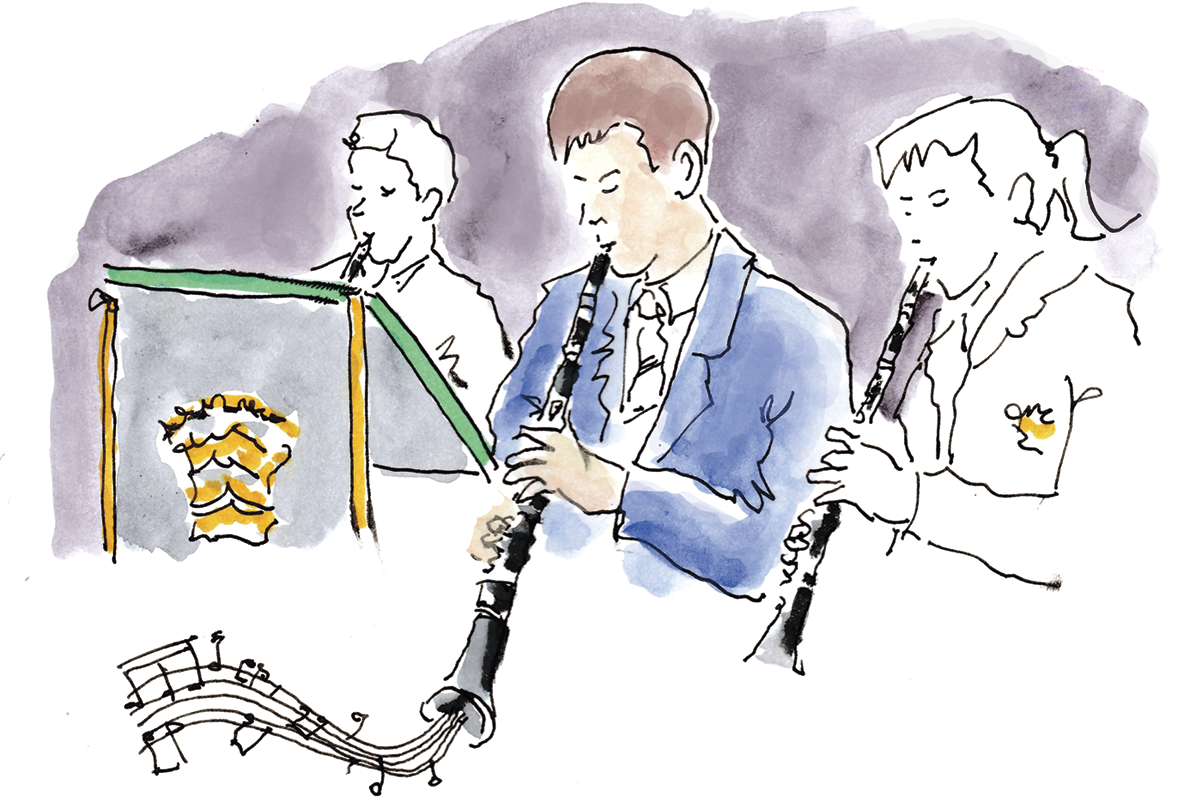Falling in love with my clarinet, all over again
Loading...
I can still see myself, age 8. A warm early summer evening. Stopping in front of a music store because something had caught my eye. Maybe it was the shiny silver keys contrasting with the black ebony wood. But if someone ever chooses to write my biography, and I have any input, I will be able to pinpoint this as the exact moment I fell in love with the clarinet.
It took a year of cajoling, but my parents finally gave in and let me take lessons. Week after week, I made the solo trek down city streets to the music store, where I took half-hour lessons from an older Polish man who wasn’t particularly child-friendly, but he knew the clarinet. That’s all I was looking for.
I recall the early struggle to get that first, clear note out of the instrument. It took about five days. And then the painstaking crawl through those early scales, accompanied by the counterpoint of Mr. Markiewicz’s disapproval, and the metronome shaking of his head as I hit clunker after clunker. But I persisted.
Why We Wrote This
Adult coloring books. Roller skating. Young adult fiction. Revisiting childhood hobbies as an adult can evoke wonder and joy. For our essayist, it also revealed how young love evolves and matures over time.
I got to know other kids who had taken up the clarinet, but one by one, they gave it up. Truth to tell, it’s a notoriously difficult instrument to play well. Something about finicky reeds, breath control, coordinating one’s tongue and fingers, and keeping spit from clogging up the works. Anyone can strike a piano key and generate a note Vladimir Horowitz would be proud of, but getting one plangent tone out of a clarinet is a real triumph.
As I said, I persisted. Through elementary school, high school, and college, my clarinet was a sort of companion. There were still the occasional squeaks and squawks, but these were just reminders that relationships need to be constantly cultivated: Once I started paying more attention to the instrument, it sang instead of quacked.
After college, well, things, as they say, intervened. There was a stint in the U.S. Navy, then grad school, a year abroad as an exchange student, then more grad school, my first child, then another child. But as with a first love that one never really forgets, my mind occasionally wandered back, and idealized, the good times I’d had with the clarinet. Such as playing Piece No. 6 by Francesco Geminiani in my method book. Yes, my dear, we were young and starry-eyed, but weren’t those happy days? Whatever happened to us? Where did they go?
I know exactly where they went – into a corner of my closet, where the clarinet reposed for years and years. Until recently. In a fit of nostalgia potent enough to overcome my ennui, I decided to reach out to that long-ago love and ask if she remembered me, the eager boy who had engaged her in many a heartfelt musical conversation.
And so, I reintroduced myself. Opening the case, I gently lifted out each section of the clarinet. Wiped it down with a soft cloth. Replaced the cork tenons. Set the thing together. Checked the bore. Wet the reed. Finally, the moment of truth. I opened my childhood method book to Piece No. 6 by Geminiani and was greeted by a breath-catching rush of nostalgia when I saw Mr. Markiewicz’s pencil marks from all those years ago, including the word “good.”
I had once been good, then. Let’s see what time had wrought. Embracing the mouthpiece, I began. To my great delight, what emanated from the clarinet was a clear middle C that must have been echoed by the angels on high. I continued to play as long as my embouchure would hold out. And, at this writing, I’m still playing. I lost her once and won’t lose her again.
It’s true, then, what the eminent author Isaac Bashevis Singer once wrote: “In love, as in other matters, the young are just beginners and ... the art of loving matures with age and experience.”
He must have been a clarinetist.






